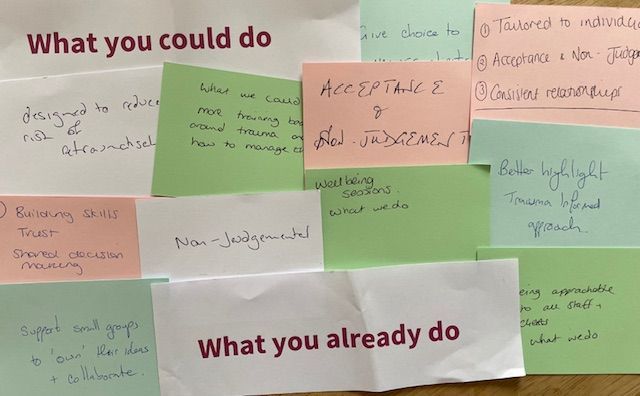Understanding loneliness in older men: a closer look
New research and what this means for your services

Recent research findings from the University of York have dug deeper into the experience of loneliness particularly among older men. This shows differences in how older men experience and articulate loneliness, opening up essential conversations around masculinity, the effects of societal expectations, and the need for more nuanced approaches to addressing loneliness among older adults.
Expectations of and by men
The study suggests that older men might not always be forthcoming about their feelings of loneliness, especially when questions are framed directly using the term "lonely." This hesitation possibly stems from traditional masculine ideals that prize stoicism and self-reliance, making it challenging for men to admit feelings that might be perceived as vulnerabilities. In contrast, older women generally report higher levels of loneliness when asked directly, possibly reflecting societal norms that more readily accept emotional openness in women.
Loneliness by relationship status
An interesting aspect of the research indicates that men's experiences of loneliness are significantly influenced by their relationship status. Men not in a relationship tend to report higher levels of loneliness, a trend less evident among women. Yet, this pattern does not hold as strongly for men who have never been married, possibly because this has been more of a lifestyle choice rather than something foisted upon them, or because they have developed lifelong resources connected with being single.
Public status versus family ties
The findings further suggest that for men, a sense of belonging in public spaces and communities may be more crucial to their well-being than family connections. Activities that reinforce men's roles as providers of social support, such as helping friends and neighbours, appear to mitigate feelings of loneliness. This insight underscores the importance of fostering inclusive community environments where older men can engage meaningfully. This links to findings outlined in my previous briefing about befriending and loneliness that people are more likely to make friends through a shared specific activity and people are more positive towards the idea of a shared interest group than a general social one.
Alcohol consumption
The study also touches on the social implications of alcohol consumption, revealing that while women may derive social benefits from moderate alcohol use, the same does not apply to men (perhaps this is another study about how the decline of neighbourhood pubs affects men’s experience of loneliness, I’m from a time and a culture where (mostly) men would go out (almost) nightly and on a Sunday lunchtime to meet neighbours and chat in the pub. The village I grew up in no longer has a pub, and many others have turned into dining pubs with little space for locals).
Loneliness (subjective) and social isolation (objective)
It appears that men are somewhat more accepting of social isolation than women. Previous articles on my website have highlighted the distinct health and wellbeing risks associated with isolation, regardless of subjective feelings of loneliness, and this research supports the idea that even if someone says they are only alone, not lonely, their health and wellbeing can still be affected.
Implications for support services
These findings call for a "need for sex-sensitive policy and practice in loneliness on a national scale". For service providers, this means recognising the unique ways in which men experience and express loneliness, particularly those who are bereaved, separated, or have never married. It also points to the need for careful consideration in how we ask about loneliness, incorporating measures of social isolation to capture a fuller picture of an individual's health and wellbeing.
Towards a more inclusive understanding
As we aim to understand the complexities of loneliness and wellbeing in older age, it's clear that one-size-fits-all solutions don't meet the needs of everyone. This research highlights the critical need for tailored support strategies that acknowledge the diverse experiences and challenges faced by older adults. Whether through more thoughtful policymaking, community activities, or individual support services, addressing the nuanced realities of loneliness can lead to more effective and compassionate outcomes.
How Ideas to Impact can help
For those interested in delving deeper into topics like loneliness, isolation, wellbeing, and psychologically or trauma-informed services, I have some free resources like this on my website, which I add to as interesting topics arise. I can also undertake targeted research to provide insight and evidence to guide decision-making and support funding bids. Pricing varies based on whether the project uses my existing knowledge and findings or requires new, targeted research. For more information or to discuss how I can support your needs, please get in touch using the contact form below or emailing becky@ideastoimpact.co.uk










